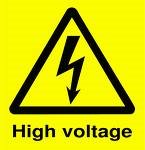- Analog and Digital Conversion
- Basic Electrical Generation and Distribution
- Biography of Nikola Tesla
- Circuit Idea
- Circuit Theory
- Communication Systems
- Digital Circuits
- Digital Signal Processing
- Electric Circuits
- Electrodynamics
- Embedded Systems
- Microprocessor Design
- Power Systems Analysis, Design, and Control
- Signals and Systems
Sunday, July 1, 2007
Electrical Engineering Books
Useful Experience/Skills that Electrical Engineering should have
- Project management
- Team project work
- Proposal writing
- Making presentations
- Financial management
- Committee work on industry ethics
Electrical and electronics engineers work for:
- Electrical utilities companies
- Communications companies
- Firms manufacturing electrical/electronic equipment
- Consulting firms
- A wide range of manufacturing, processing, and transportation industries
- Government
- The unionization rate (20%) is below the average (32%) for all occupations.
- The highest concentrations (per 10,000 people) of Electrical and Electronics Engineers are found in Alberta and Ontario while the lowest concentrations are in Saskatchewan and Prince Edward Island.
Electrical and electronics engineers perform some or all of the following duties:
- Electrical and electronics engineers may specialize in a number of areas including electrical design for residential, commercial or industrial installations, electrical power generation and transmission, and instrumentation and control systems.
- Conduct research into the feasibility, design, operation and performance of electrical generation and distribution networks, electrical machinery and components and electronic communications, instrumentation and control systems, equipment, and components
- Prepare material cost and timing estimates, reports and design specifications for electrical and electronic systems and equipment
- Design electrical and electronic circuits, components, systems and equipmentSupervise and inspect the installation, modification, testing and operation of electrical and electronic systems and equipment
- Develop maintenance and operating standards for electrical and electronic systems and equipmentInvestigate electrical or electronic failures
- Prepare contract documents and evaluate tenders for construction or maintenance
- Supervise technicians, technologists, programmers, analysts and other engineers.
Subscribe to:
Comments (Atom)
Electrical Engineering
Electrical Engineering (sometimes referred to as electrical and electronic engineering) is a semi-professional and professional engineering discipline that deals with the study and/or application of electricity, electronics and electromagnetism. The field first became an identifiable occupation in the late nineteenth century after commercialization of the electric telegraph and electrical power supply. The field now covers a range of sub-studies including those that deal with power, electronics, control systems, signal processing and telecommunications.
The term electrical engineering may or may not encompass electronic engineering. Where a distinction is made, electrical engineering is considered to deal with the problems associated with large-scale electrical systems such as power transmission and motor control, whereas electronic engineering deals with the study of small-scale electronic systems including computers and integrated circuits.[1] Another way of looking at the distinction is that electrical engineers are usually concerned with using electricity to transmit energy, while electronics engineers are concerned with using electricity to transmit information.
The term electrical engineering may or may not encompass electronic engineering. Where a distinction is made, electrical engineering is considered to deal with the problems associated with large-scale electrical systems such as power transmission and motor control, whereas electronic engineering deals with the study of small-scale electronic systems including computers and integrated circuits.[1] Another way of looking at the distinction is that electrical engineers are usually concerned with using electricity to transmit energy, while electronics engineers are concerned with using electricity to transmit information.
